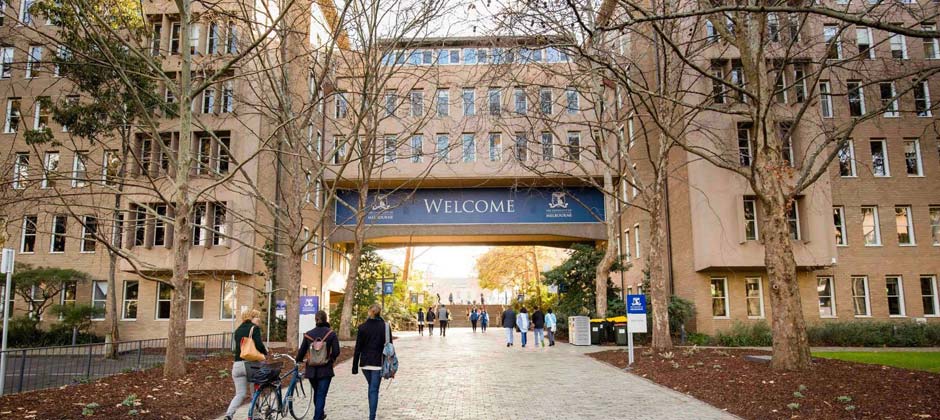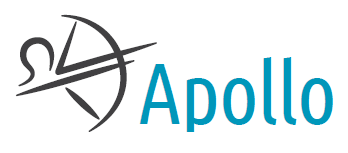This 2-day masterclass provides participants with an introduction to applied choice modelling using the Apollo software. Apollo is open-source software for estimating choice models (www.apollochoicemodelling.com). Apollo is used around the world in academia and industry and is rapidly becoming the go-to resource for applied choice modelling.
This course is being hosted in-person at the University of Melbourne.
This course is preceded by the Fundamentals of Choice Modelling Master-class on February 3-4, also in-person at the University of Melbourne
Choice modelling is one the core methods of the applied economic sciences, including environmental, health, and transport economics.
This 2-day masterclass provides participants with an introduction to applied choice modelling using the Apollo software. Apollo is open-source software for estimating choice models (www.apollochoicemodelling.com). Apollo is used around the world in academia and industry, and is repidly becoming the go-to resource for applied choice modelling.
The master-class will focus on hands-on exercises using the open-source Apollo software for the estimation of choice models.
Stephane Hess is Professor of Choice Modelling and Director of the Choice Modelling Centre at The University of Leeds (UK). Stephane is a globally recognised leader in choice modelling with interests in behavioural models, travel behaviour, health choices, and decision making. His specific academic contributions include developing advanced choice models and empirical contributions across many fields. He is the editor of the Journal of Choice Modelling (the leading international, interdisciplinary journal in choice modelling), the chair of the International Choice Modelling Conference, and co-developer of Apollo (with David Palma, Leeds, UK), a widely used (open-source) estimation software for choice models.
This is a lab-based masterclass introducing students to the use of the Apollo software. The masterclass will be applied and place its emphasis on the implementation of the methods and models used by choice modellers and on the analysis and interpretation of choice modelling results; links to choice modelling theory will be made, but this is not the emphasis of the course.
The masterclass will introduce participants to the software and to the family of choice models estimable within Apollo. The focus will be “hands-on” exercises and estimating choice models using Apollo with data provided by the instructor. The masterclass will place particular emphasis on model estimation and interpretation. The exercises will span a range of application areas including environmental, health, and transport economics.
The target audience is primarily an academic one including university researchers, PhD students, and applied researchers from government agencies and departments.
Day 1
- Introduction to choice modelling in Apollo
- Estimation of multinomial logit and specification testing
- Analysis and interpretation of results
- Demand forecasting
Day 2
- Estimation of models with flexible error structures in Apollo
- Nested logit and mixed logit estimation
- Latent class models
- Hybrid Choice models
This is a lab-based masterclass. Participants will need to bring their own laptops.
Participants are encouraged to install the R software on their laptops before starting the masterclass.
Participants will require a priori knowledge of choice modelling theory.
It is recommended that this includes all the topics covered in the masterclass on choice modelling theory.
There is no requirement for previous experience using R.
Note a 2-day masterclass on choice modelling theory will be offered immediately before this applied course.
Hess, Stephane and David Palma (2019), “Apollo: A Flexible, Powerful and Customisable Freeware Package for Choice Model Estimation and Application, Journal of Choice Modelling, 32 (September).
Hess, Stephane and David Palma (2022), Apollo Version 0.2.8: User Manual. www.ApolloChoiceModelling.com.
I got more insights in 2 days than in at least 2 years of PhD
Taught well and pertinent to my work
Learning by doing, with help provided when I was stuck

The University of Melbourne's Parkville Campus one of the oldest and largest university campuses in Australia. It is located just beyond the Northern border of Melbourne's CBD. Lygon Street and Carlton Gardens are located a short walk to the East, Queen Victoria Market to the South and Royal Park to the North West.
A campus map is available here.
The campus is centrally located so there is a huge variety of accommodation options available. Virtually any accommodation in Parkville, Carlton, North Melbourne and the top part of the CBD will be within easy walking distance. Even outside those areas, the university is walkable or a short tram ride. Please note that Melbourne University is outside the Melbourne CBD free tram zone.
A number of on-campus residential colleges are listed here, most of which are about a 10 min walk from where most ACSPRI courses will be held (cnr Pelham and Berkerley Sts). Some of these may have casual, short term accommodation available but you will need to contact each one directly (Graduate House, International House, Newman College, University College and Queens College).
If you're looking for a hotel near the University, we suggest googling 'hotels near The University of Melbourne' and you'll get many options. You can also choose to stay in the Melbourne CBD and take a tram to the campus. Please note that Melbourne University is just outside the CBD's free tram zone & you will need a public transport card or to download the public transport app - MYKI (not for iphones- sorry!), to travel to the University. Inspectors regularly check for tickets outside the free tram zone & there is a subsantial fine for not having a validated MYKI card.
Public Transport
The Parkville Campus is well serviced by trams with numerous routes from the Inner South and South East travelling travelling through the heart of the CBD on Swanston Street, past Flinders Street and Melbourne Central Train Stations and on to the University. Some of these routes continue on to the inner-North. If you are staying in the CBD, there are also several routes that travel up Elizabeth Street, which runs past the bottom SE corner of the campus, very close to the FBE and Spot Buildings, where we hold our courses. All metropolitan train lines will stop at Flinders Street if not Melbourne Central as well. A journey planner for all of Melbourne's buses, trams and trains can be found here. Please note that Melbourne University is outside the Melbourne CBD free tram zone, please use a valid MYKI card or the Android MYKI App or risk a fine.
A MYKI card or the Android MYKI App, is the only ticketing system available for travel on Melbourne's public transport system. Visitors to Melbourne can find out more about MYKI and how to use Melbourne's public transport here. As mentioned above, Melbourne University is just outside the CBD's free tram zone & you will need a public transport card or Android App - MYKI, to travel to the University. Inspectors regularly check for tickets outside the free tram zone & there is a substantial fine for not having a validated MYKI. Android MYKI instructions are here. Sorry not available for Apple phones!
If travelling up Swanston Street by tram, the best stop is at Lincoln Square, the stop after Queensberry Street and three stops before the main campus entrance, where several routes terminate. Pelham Street is on both sides of Lincoln Square, you will need to cross the square and walk up the other section of Pelham Street for five minutes.
If travelling up Elizabeth Street, the best stop is just before the large junction of Elizabeth Street, Flemington Road, Pelham Street and Peel Street, which has a large Australian flag on a pole in the middle of it. This is also the stop after Queensberry Street. From here you should be able to see The Spot Building 130m away on Pelham Street.
Driving
If driving, all day parking is available fairly close to The Spot and FBE Buildings in the public car parks. University Square Car Park is the closest. It is $30 per day with access via Bouverie St or under the Alan Gilbert building off Berkeley St. You can access a list of public car parks and their fees and charges here.

